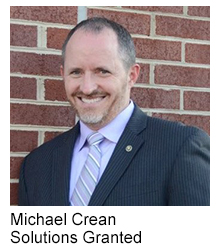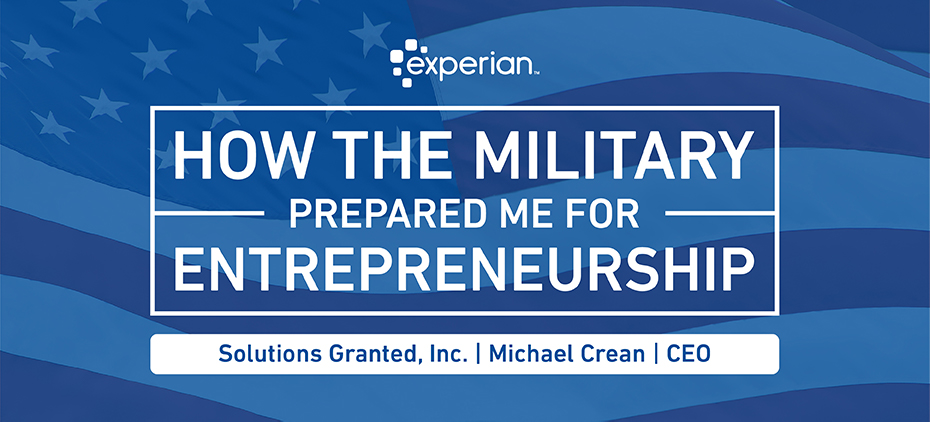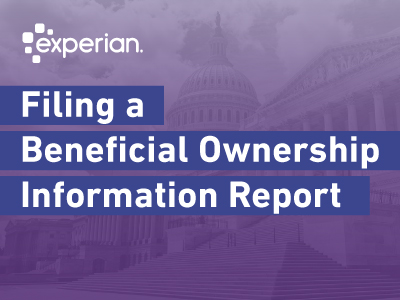For the month of May, as we head into Memorial Day, the Small Business Matters blog will feature a series of posts highlighting military veterans who went into business for themselves. We’ll ask them about making the transition from military to small business, what challenges they faced, and how their career in the service prepared them to run their own small businesses.
Throughout this interview series, it’s become obvious that veteran entrepreneurs, or vetrepreneurs, seem to possess a few similar traits. Whether these veterans were born with these qualities, they were instilled during childhood or they honed them during their active duty service is still to be determined. Veteran entrepreneurs are resourceful leaders and seem to readily adapt to life as a business owner.
An Army veteran who recognized his entrepreneurial spirit in high school and needed a job after transitioning from the military, shares his self-described, “dumb luck” story with us.
 Micheal Crean’s first taste of owning a business was in junior high school. He would buy Little Debbie snacks and sell them to his friends. His parents worked for 30 years in a GM factory, doing the same job every day, something Crean described as “monotonous”, with no complaints. They took their children on family vacations and allowed them to play whatever sport they dreamed. He looked up to them, their persistence and tenacity to do whatever it took to take care of their family.
Micheal Crean’s first taste of owning a business was in junior high school. He would buy Little Debbie snacks and sell them to his friends. His parents worked for 30 years in a GM factory, doing the same job every day, something Crean described as “monotonous”, with no complaints. They took their children on family vacations and allowed them to play whatever sport they dreamed. He looked up to them, their persistence and tenacity to do whatever it took to take care of their family.
After spending 9 years in military – 4 years at Ft. Bragg’s 82nd Airborne Division on special assignment – Crean felt tired of not being home for his own family. He would go on a 15-month deployment, leaving his wife and baby and come home to a “walking, talking child”. He imagined, after seeing the globe and many different points of view, that he’d do something with his life. He ended up doing something he never imagined.
“I had to make a decision of what was more important to me.”
What did you like most about serving in the U.S. Military?
“The ability to work on a global level protecting those who could not protect themselves.”
What inspired you to make the transition to entrepreneurship?
“If it wasn’t for kids, I wouldn’t have been out of the Army. I served and now I wanted to be a dad.
It’s kind of a story of dumb luck and needing a job. I interviewed with a company who hires veterans in the DC area. They asked me if I knew anything about computers. I knew I could learn anything I put my mind to… but I also get bored really easily. The government contracting world puts you in a box and you do that job for as long as that contract goes on. This was around 1999.
I decided to step out into commercial space. I was valuable because of my leadership qualities. I found myself trying to stay in front of the dot com failure wave. It caught up with me. I was mad and disappointed in myself because I’d given up a military career and now I was on unemployment.
A general contracting company offered me a job to tear things down. At the same time, a good friend who worked at collection agency asked me to come build computers and network for them. Another person who was a VC said their full time IT guy left and asked me if I would do it part time. I would do whatever it took to feed my family. My friend at the VC company was doing textile cleaning for high end homes and the White House. Someone wanted me to help build a network. That was around 2001 and it just went on from there. “
Michael Crean started Solutions Granted in 2001 in response to the need for information technology and information security, or cybersecurity, expertise. As someone who fell into the business, he credits his adaptability and resilience with keeping his business going, even through the recession. Solutions Granted helps businesses in many markets and government entities with IT security but also develops new solutions as needed in the ever-changing digital landscape.
What skills from your military career do you apply most often in your business?
“Logical thinking, crisis management, effective leadership…
The things I did in the military – not having running water or eating a meal that comes from a brown plastic bag – taught me to get creative. As a business owner, that really lets me know what’s important in life. I don’t take things that seriously because I know what the military goes through. In my business, what we’re doing is important but no one’s going to die today. The military gave perspective.
And adaptability! The military taught me that! How to adapt and overcome in the face of adversity. Entrepreneurs need to have this too. Our business model has changed a couple times through necessity.”
Did you access Government programs to launch your business such as SBA loans?
“No. No small business loans. No mentors for me. The only idea I had on how to run a business was, to be honest, honorable, ethical, and offer a good service.
We’re self-funded. We never needed business loans. We did use lines of credit to do what we do. Maybe my business would be different if I did that. We’ve been reinvesting in our company along the way. Hiring and growing at a measured pace. I learned the lesson, ‘take care of your soldiers.’ We take care of our employees. One of the largest expenses is healthcare. I pay 100% of my employee’s benefits – and for an employee who’s been with us over 10 years, for his wife and kids too.”
What is the greatest reward in being an entrepreneur?
“Being around to affect my employees’ lives and watching their families grow and prosper.
The military taught me, ‘it’s our own free will to say yes’. When you set out to start your own business you must remember that you chose this. It wasn’t forced on you, you chose this. I have three grown daughters and two younger children at home. My oldest daughter started working for me after she graduated college. She runs accounts receivable, order management and accounts payable. I get to recreate time with my daughter, time I lost during deployments. I’m almost 18 years into this. One employee has been with me for 10 years, since age 18. How does life get any better?
When I joined the military, I wanted to make a difference. I wanted to leave something for my children, protect those freedoms and enjoy being a kid. I can continue to do this because cybersecurity is such a danger to businesses out there. I guess I’ve traded one battlefield for another.”
Is there anything else you’d like to share?
“Be passionate about something and be good at what you do. Stop worrying about what’s happening around you to others.
When a door opens, don’t be afraid to walk in. The unknown could be the greatest level of success you could not have predicted.”

